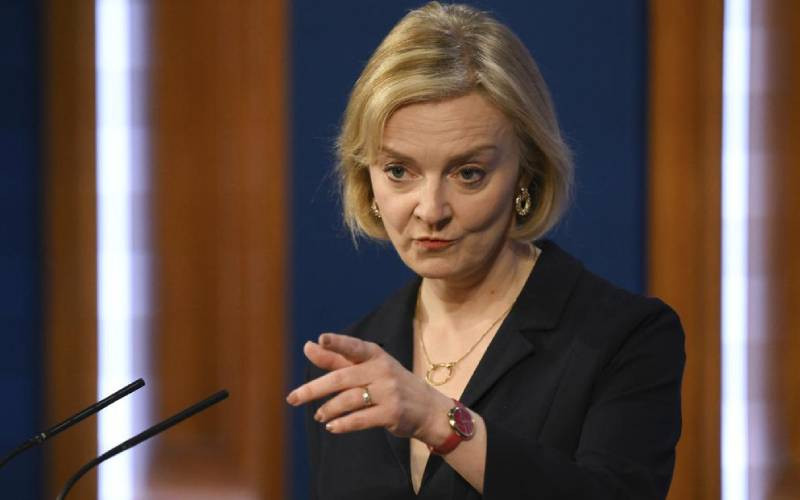×
The Standard e-Paper
Smart Minds Choose Us

Powerless, humiliated, labelled a "ghost" prime minister and compared unfavourably to a head of lettuce - this is not a good week for Liz Truss.
Britain's prime minister was scrambling to recover her grasp on power Tuesday after her economic plans were ripped up and repudiated by a Treasury chief whom she was forced to appoint to avoid a meltdown in the financial markets.